In Mumbai: From roasted quail to rabri
The nalli nihari Sanjay Dutt will miss this Ramazan sells right here in Mumbai.
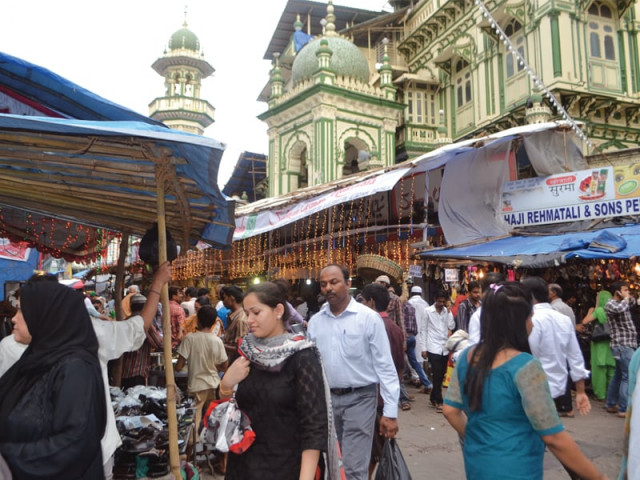
The nalli nihari Sanjay Dutt will miss this Ramazan sells right here in Mumbai.
My first stop on this gastronomical pilgrimage is Bohri Mohalla, a name indicating the large presence of the Dawoodi Bohras living in the area. I wind my way through a long lane, beset on both sides with magical cauldrons of sizzling malpuas, a milk pancake, fried and sinfully dipped in sugar syrup, mounds of the rich, milky rabri sweet, stalls selling every ilk of chaat and balls of colourful suttar feni, a string-like sweet mixed with milk and eaten at sehri, before the fast is kept at dawn. The potato chaats at Bohri Mohalla come highly recommended, prepared as they are with special masalas not found elsewhere in the city. What goes into them? Well, that is kept a closely guarded secret.

I head straight for Noor Sweets, an institution in its own right, famous for its malpua-rabri and roasted kaju barfi. “We have customers from all over the country. Even the family of His Holiness orders from us,” says its 85-year-old owner Abdulali Hassan Ali proudly, referring to the Syedna, the spiritual leader of the Dawoodi Bohras. Ali claims to sell over 200 kilogrammes of malpua a day during Ramazan. “The secret is that we use the purest ingredients and have never compromised on quality,” he says.

Twenty-five-year-old Shaikh Aafreen Ali Mohammed agrees. He was born and brought up in Mumbai, where it is de rigeueur for the family to pay a daily visit to Noor Sweets during Ramazan. “Malpua is available right through this month which is not the case otherwise so we make it a point to come here,” he says.
Bohri Mohalla is among the quieter parts of Mohammed Ali Road and packs up by midnight. That is the time to hit Minara Masjid, just two lanes away. Here the action continues into the early morning hours. Chaotic and crowded as they are, the food stalls near Minara Masjid attract crowds by the thousands every day. The big ticket item here is roasted quail. The live birds are kept in huge cages and are grilled to order.

For the more faint-hearted, there is nalli nihari, which is the other big attraction, especially with the Bollywood set. Aamir Khan and Sanjay Dutt, I am told, are regulars here during Ramazan. “Sanjubaba usually comes here in the early morning hours during Ramazan,” says Abdul Kalim, stirring a huge pot of nalli, a slow-cooked beef or mutton stew, which traces its origins to Awadh and Hyderabad. “He sits rights here and eats like everyone else,” Kalim says pointing, as if to support his claim, to his ordinary, rather rundown stall. This year Dutt who is in prison, will be missing the action. “Aamir Khan comes here too, usually after the fifteenth day of Ramazan,” Kalim adds as if to make up for the loss.
These crowded lanes, with their carnival-like atmosphere, are a microcosm of the great melting point that is Mumbai. You find the Audis and BMWs parked alongside ordinary taxis, posh families from south Mumbai high-rises and foreigners negotiating the traffic to try out different kinds of pau bread and kababs. The roads are messy and crowded, pick-pockets lurk everywhere and the drive may be a nightmare, but nothing it seems can diminish the magic.
As 28-year-old Nida Thakur emphasises, “There is LIFE here.” Raised in Mumbai, Nida moved to Qatar five years ago after getting married. She makes it a point to time her annual visit back home during this season. “I have to come here and eat the sandaal,” she says pointing to a set of clay cups filled to the brim with a sticky pudding made of rice, coconut milk, mawa and sugar. Popular among the Memons and Konkani Muslims, sandaal is exported in large quantities to Saudi Arabia and Pakistan. “When I take a bite of this, I know I am home,” she says.
Watching people surge past the green minarets of Minara Masjid, a light drizzle on my face and the smell of pineapples and smoky kababs hanging in the air, I can see what she means.
Published in The Express Tribune, Sunday Magazine, August 4th, 2013.
Like Express Tribune Magazine on Facebook, follow @ETribuneMag on Twitter to stay informed and join the conversation.

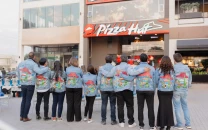
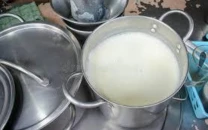
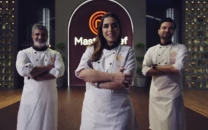
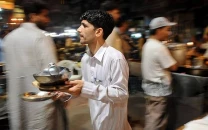














COMMENTS
Comments are moderated and generally will be posted if they are on-topic and not abusive.
For more information, please see our Comments FAQ